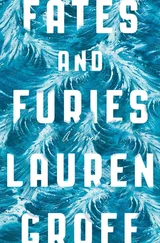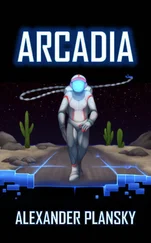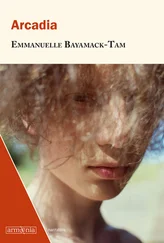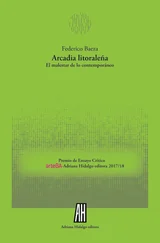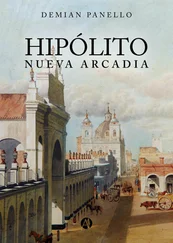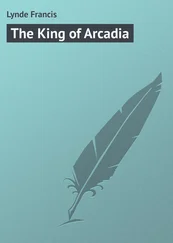Lauren Groff - Arcadia
Здесь есть возможность читать онлайн «Lauren Groff - Arcadia» весь текст электронной книги совершенно бесплатно (целиком полную версию без сокращений). В некоторых случаях можно слушать аудио, скачать через торрент в формате fb2 и присутствует краткое содержание. Год выпуска: 2012, Издательство: Hachette Books, Жанр: Современная проза, на английском языке. Описание произведения, (предисловие) а так же отзывы посетителей доступны на портале библиотеки ЛибКат.
- Название:Arcadia
- Автор:
- Издательство:Hachette Books
- Жанр:
- Год:2012
- ISBN:нет данных
- Рейтинг книги:3 / 5. Голосов: 1
-
Избранное:Добавить в избранное
- Отзывы:
-
Ваша оценка:
- 60
- 1
- 2
- 3
- 4
- 5
Arcadia: краткое содержание, описание и аннотация
Предлагаем к чтению аннотацию, описание, краткое содержание или предисловие (зависит от того, что написал сам автор книги «Arcadia»). Если вы не нашли необходимую информацию о книге — напишите в комментариях, мы постараемся отыскать её.
Arcadia — читать онлайн бесплатно полную книгу (весь текст) целиком
Ниже представлен текст книги, разбитый по страницам. Система сохранения места последней прочитанной страницы, позволяет с удобством читать онлайн бесплатно книгу «Arcadia», без необходимости каждый раз заново искать на чём Вы остановились. Поставьте закладку, и сможете в любой момент перейти на страницу, на которой закончили чтение.
Интервал:
Закладка:
Bit takes a trash bag of weed to Hannah and Abe’s room. His mother is sitting on her bed, hands between her legs, looking heavy. He puts the bag on the bed beside her, and when she looks up, she takes in his split knuckles, his bloody head, the eyes squeezing shut under their bruises. She kisses his hurt hands. Thank you, she says, but she’s not smiling.
Now we can sell it, Hannah, he says. We can pay our debt.
For a long while she says nothing, and when she speaks, it’s in a whisper that he has to lean closely to hear. Too little, she says. Too late.
In the night there is the sound of breaking glass on the first floor. In the morning, they find the windows of the Eatery smashed out and down the hill the Runaway Quonset kicked down. It looks like a tornado went through it, Cole reports. Sheets and cots and mattresses all split and twisted and wet. All of the Runaways are gone. Soon, the Trippies vanish, most of the Newbies go home, or to other communes, hitching to cities, rejoining the world.
Ike is not in their room. Cole and Bit search the Pond, the Bakery with its few loaves of golden bread, the Soy Dairy, the Octagonal Barn, the Showerhouse. They walk the fields for him, check the Gatehouse, where Titus’s old badger smell still hangs in the air.
At last, Cole says, Waterfall, and he and Bit check the sun. If they start now and trot, they can make it there and back before dark. Bit has matches in his pocket. Cole has a little gorp in a paper bag.
They go through the forests, through the afternoon. They stop once for wild blackberries that stain their teeth and hands, and keep on. At last, they hear the tremendous pour. The air goes clammy, plants grow up the length of trees, rocks they’re jogging over turn slippery. Around the bend and there it is, the tallest thing Bit has seen, forty feet of falling water. It surprises him every time, its power and spin and foam, the deafening crash and split of the water on the rocks. The lick of the ferns in the misted air. The strange, kind softness of the very atmosphere. A pulse of pleasure goes through Bit that ends with tears shivering in his eyes and a hurried swipe with his sleeve.
Cole and Bit scale the cliff, clutching at roots and ferns, and heave themselves over the edge. Ike is sitting in his jeans in the shallow water, five feet from the drop. They pick their way to him carefully: the current is strong enough to carry them over the edge. In more carefree times, when they jumped into the pool, they had to aim with precision or their bodies would smash into the rocks below. They sit on either side of Ike, who says nothing. The skin of his arms is bluish and pocked with goosebumps. Bit wonders how long he has been sitting here.
Above the treetops, the sky turns woolly, a slick dark silver. Sun pokes through holes in the cloud cover and fingers the distant ground. Bit feels prickles behind his ears, as if he’s being watched. A bobolink calls. A doe steps to the pool below, and after a moment, so do her fawns.
Ike says, They don’t want me. None of them. My parents.
This is not the time to lie, and the boys say nothing. For a long time they sit like this, together, in the rush of the stream and watch the water anneal at the edge, hear it break upon itself below.
They come out when Ike is shuddering with cold, and Bit makes as grand a fire as he can. Ike clutches his bare legs to his chest, his pants steaming in the heat. He pulls a little bag of weed from his shirt pocket, and Cole gets busy with it.
The daylight emerges for one last breath, syruping the valley. There is a movement in the trees, and they look up with alarm, thinking bears, when two boys step out onto the bank. They aren’t Arcadians: they’re wearing overalls and linen blouses, and are as tall as Cole and broad in the shoulders. One throws the stick he’s been peeling into the fire with a shy underhanded toss. The other crouches down. Bit is alert, wary, waiting for a sudden move.
But the first boy just says Hi? and Cole lets out a snoutful of smoke and says, Heya.
Heya, the other one repeats. He is dark-haired and younger than his brother.
No English, the first says, the one with a gap between his teeth. Amos boys? Amos Two, John, he says, pointing at himself, his brother.
Oh, dig, yeah, Cole says. We know Amos. He’s cool. You’re his sons.
The crouching boy looks at the roach going to Bit’s mouth. Bit inhales, considers, offers it to him.
The boy takes a big lungful and begins to hack it out. Cole grins at him, and Bit hides his laugh in a fist, and then the young one steps forward and takes a big inhale, and lets it out, coughing only a little.
Bit watches the sturdy boys with their square faces and knuckles. The Oldest Utopianists, Hannah said once, watching the Amish men who came to help with the harvest: for generations, they’ve lived the most perfect lives they can believe in. Bit imagines meals of animal flesh and hard chores and a huge family and girl cousins in demure frocks. What a relief it would be to live always among family. To be among people who all look like you, think like you, behave like you, have the same God to love and fear, a God angry enough to smite and loving enough to give, a God with an ear big enough to hold the secrets you whisper into it, who lets you empty yourself and walk back into your life, infinitely lighter. He feels loss for something he’s never known.
They sit, companionably, passing the joint. The world darkens more. At some signal, the Amish boys stand and nod at the Arcadians and disappear into the woods, back toward their safe, solid houses, back to their families.
Ike puts on his dryish pants, Cole kicks dirt over the embers of the fire. They begin to walk fast, homeward. Bit holds his words in for as long as Ike needs him to. They are halfway home before Ike looks at his friends. His face is baggy; for miles, his stomach has been audibly rumbling.
Those Amish dopes were so fucking weird, Ike says and begins to laugh.
Cole gives his little whinny. Bit finds himself laughing, too, laughing and laughing until tears spring to his eyes and he has to lean against a tree to stop it, or he will piss. When they’re quiet, the boys look helplessly at one another. They feel tired in their very bones.
Those mofos, Cole says. They’re even weirder than we’re going to be out in the real world.
Bit begins to shiver, though they are going quickly enough to warm themselves. He feels sick, wants to break into a trot, a gallop, a sprint. He cannot imagine himself in the Outside. Because, he can admit it now, no matter how he strains his brain, he cannot imagine the greater world at all. He is not ready.
Night has fallen when they come up into the Eatery. They have missed their dinner. The kitchen is dark and empty. But they find a note on the stainless-steel counter: Hannah had saved plates in the oven and a whole loaf of bread, just for them. Bit hides the note in his pocket so Ike won’t see how his mother wrote I love you at the bottom and feel his own lack.
They are just finished when Helle comes into the kitchen, her cheeks glassy. Ike, she whispers, Margrete’s here.
In blows an old woman, straight and white, Astrid but smaller, the air around her dense. There is a power to her. A witchiness. Her mouth telegraphs rules, hard chairs, cold-water showers, feline familiars with bladder troubles. You come now, Isaac, she says in Astrid’s accent, comically exaggerated.
Ike stands and towers over his grandmother. She pats his cheek and goes out. Air returns to the room.
Ike says, I’m not saying goodbye. Goodbye means never again, and I’ll see you in weeks. Months, at most. He turns his back on his friends and rushes out.
Helle hugs Cole for a long time, too long, Bit thinks. When she comes to hug Bit, he drowns in her vanilla, her dreads making a tent around his face. Her retainer is a flash on her tongue. He has grown, he sees with a startle: he can almost see level into her golden eyes.
Читать дальшеИнтервал:
Закладка:
Похожие книги на «Arcadia»
Представляем Вашему вниманию похожие книги на «Arcadia» списком для выбора. Мы отобрали схожую по названию и смыслу литературу в надежде предоставить читателям больше вариантов отыскать новые, интересные, ещё непрочитанные произведения.
Обсуждение, отзывы о книге «Arcadia» и просто собственные мнения читателей. Оставьте ваши комментарии, напишите, что Вы думаете о произведении, его смысле или главных героях. Укажите что конкретно понравилось, а что нет, и почему Вы так считаете.
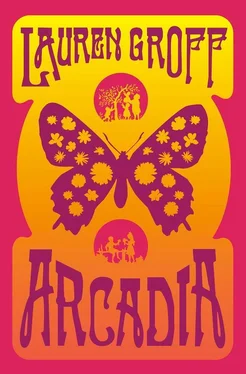
![Andrea Höst - In Arcadia [Touchstone - Extras]](/books/56405/andrea-host-in-arcadia-touchstone-extras-thumb.webp)

